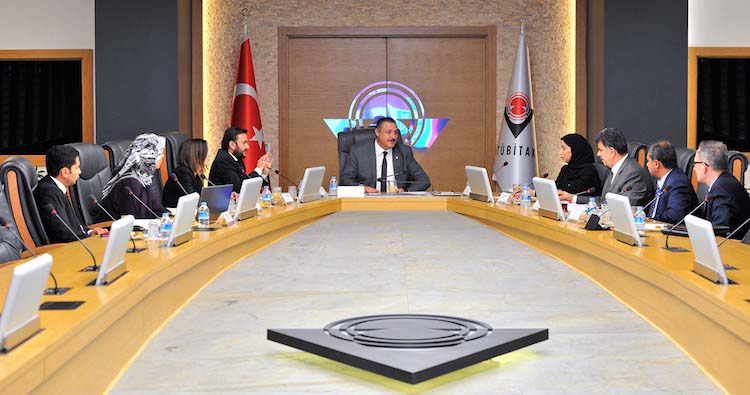Three key cyber-challenge areas to be addressed through partnership-focused funding call
A groundbreaking model designed to drive public-private sector collaboration and generate impact is the cornerstone of a new programme, developed by Qatar National Research Fund (QNRF) and Turkey’s leading research agency, set to strengthen Qatar’s cyber resilience.
The programme will focus on three themes addressing cyber security challenges that Qatar and Turkey share – cloud and big data security, security systems for mobile devices and applications, and critical infrastructure cyber security – and will be jointly funded by QNRF, part of Qatar Foundation Research and Development (QF R&D), and the Scientific and Technological Research Council of Turkey (TÜBİTAK).
Academic and research institutes and industry, the private sector, and government partners from both nations will work side-by-side through the joint funding programme, which is due to be launched mid-September this year. The awarded projects will be announced in March 2018, with software and hardware element funded for three years and software-only projects funded for two years.
The programme was developed following a December 2015 agreement between QNRF and TÜBİTAK to collaborate on projects in areas of mutual interest, and in recognition of the vital role of science, research, and technological innovation in the economic and social development of their respective countries. Cyber security as an issue of strategic priority for both Qatar and Turkey led to it being selected as the focus of the initial programme, with the partnership including possible further bilateral cooperation in other key areas.
A QF R&D delegation visited TÜBİTAK’s headquarters recently to formalise the joint funding call, which will employ a collaboration model called ‘2+2’. This model outlines how the impact of research and innovation can be intensified by academia, research institutes, and other stakeholders – pooling their resources, facilities, and expertise to nurture innovation and create economic growth.
Nada Al-Olaqi, Qatari Delegation Head and Business Planning and Performance Manager, Office of Policy, Planning and Evaluation from QF R&D, said that Turkey’s capacity for innovation is very strong, and that shared challenges, priorities, and belief in science and research as a driver of economic growth, meant that there is great synergy between the two countries.
This joint funding programme mirrors QF R&D’s strategic objective of fostering public/private sector collaboration, which is instrumental to advancing Qatar’s research agenda and addressing its national priorities. It has the potential to bolster the cyber resilience and economic strength of both countries, and we hope it represents the start of a successful, enduring partnership.’
Dr Abdul Sattar Al-Taie, QNRF Executive Director and a member of the delegation to TÜBİTAK, said that QNRF places great emphasis on international and regional collaboration, recognising that challenges are not unique to one nation, expertise transcends geographical boundaries, and the amalgamation of knowledge, resources, and ambition opens up the potential for greater impact and global competitiveness in science and research.
Our collaboration with TÜBİTAK reflects the fact that partnership generates strength, ideas, momentum, and the most mutually-beneficial research outcomes. This approach is the essence of our initial joint funding programme and, through adopting a model built on multi-sectoral collaboration and focused on commercialization and impact, we believe it will make a pivotal contribution to developing Qatar’s cyber security expertise and ensuring the resilience of the nation’s critical infrastructure.”
The ‘extensive cooperation agreement’ between TÜBİTAK and QNRF – which also includes the establishment of joint fellowship programmes and workshops – makes ‘the exchange of research and knowledge possible,’ according to TÜBİTAK President Professor Dr A Arif Ergin.
Both parties plan to support high-calibre research consortia – including partners from industry, universities, research institutes, and public bodies – in order to develop cyber security projects. The aim of these collaborations is to jointly build a defence against cyber attacks, through making our cyber security technology a reality.’
For more information about the new cyber security programme, visit the QNRF website.





